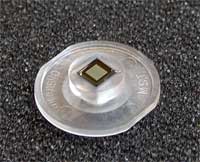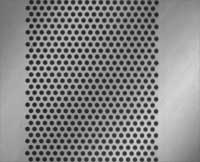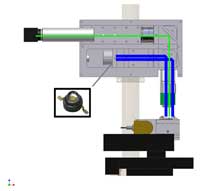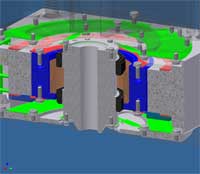CCM - Centre for Concepts in Mechatronics Company Center

Postbus 12; 5670 AA NUENEN
Visit: De Pinckart 24; 5674 CC NUENEN
Netherlands
+31-(0)40-2635000

FluXXion micro-sieve in holder

Sieve surface in detail

fluXXscan fluorescence microscope with blue LED-illumination

CAD drawing showing the construction of the focus actuator. Both the objective lens holder (gray inner body) and the stator part of the actuator (blue body) that also acts as balance mass are mounted with leafsprings to the outer housing of the actuator.
CCM is a private, independent research and development company, founded in 1969 by Professor Alexandre Horowitz (Eindhoven University of Technology).
In the spirit of the founder, CCM has a good reputation in the development of a vast number of creative solutions. The growth to around 100 employees has ensured that CCM is able to professionally realise these solutions.
Our employees are highly educated technical specialists (around 40% has a university degree), divided over mechanical engineering, physics, electronics and informatics.
CCM has all the necessary facilities, onsite, for execution of the projects. This includes workshops for assembly activities, test areas and a clean room laboratory. Furthermore CCM has an extensive network of specialist knowledge within scientific institutions, partners and suppliers.
SERVICES
CCM works on a project basis in close co-operation with the customer. CCM has many years of experience with development projects and applies a project management approach aimed at risk limitation and cost control.
Projects are split up into phases with objectives and budgets agreed in advance. This approach guarantees feedback on objectives and feasibility. Simulations and prototypes are often used to verify critical processes and parameters. Naturally, confidentiality is guaranteed and exclusivity can be granted.
Throughout the entire project there is one project leader. The project team may change in each phase of the project.
Projects in CCM consist of:
- Total development from concept to realisation
- Consultancy
- Concept development
- Development to engineering (construction and/or series construction by the customer)
- Construction / test prototype or subsequent delivery of a small series
- Support of delivered machinery (equipment)
The fluXXscan method
A novel, fast and accurate method for detection of human pathogens like legionella and tuberculosis.
With the fluXXscan method it is possible to detect micro-organisms in filterable liquids, depending on the type of fluorescent labeling. Typical applications are determination of bacterial contamination and detection of human pathogens.
Typical markets are for example water quality management, environmental control, food/beverage-, cosmetics- and drugs industry.
The FluXXscan method consist of 3 process steps.
- Filtration is performed using fluXXion’s accurate microsieve, produced by a lithographical process. A sieve surface of only 3 mm x 3 mm is required for obtaining a sufficiently large flux.
- Labeling of micro-organisms in situ, non invasive, directly on the surface of the sieve.
- Fluorescent Microscopy and image analysis
In a few minutes the complete sieve surface (3 mm x 3 mm) will be scanned automatically and analysis of the image will reveal the presence of labeled micro-organisms.
Products & Services
Last update by H.W. van Doorne, Tue 19 Sep 2006
